Body
And the first kihon you learn is to take off your shoes. Easy right?
Where do you put them down? How?
Are you reminded of the sanctity of the place?
Of concern for the health of your dojo mates?
Of mental passage from one world into the next?
Of emotional preparation for a wholehearted effort?
...to name a few.
In karate, what you do is mostly always easy. Doing it right is the trick. Doing it right every time is the real trick. And doing that, while thinking of something else, is where the adventure begins.
In fact, we know fundamentals to be so important that the first karate you learn also teaches you how to learn karate. (And for that, we even have our own system.)
It's that simple. If it was easy, karate students wouldn't be so special.
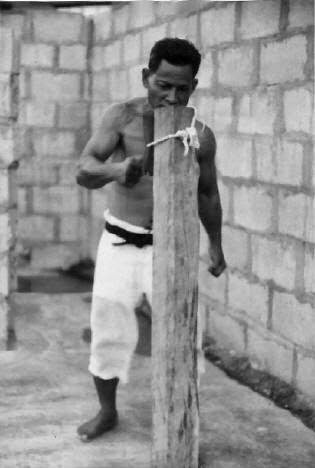
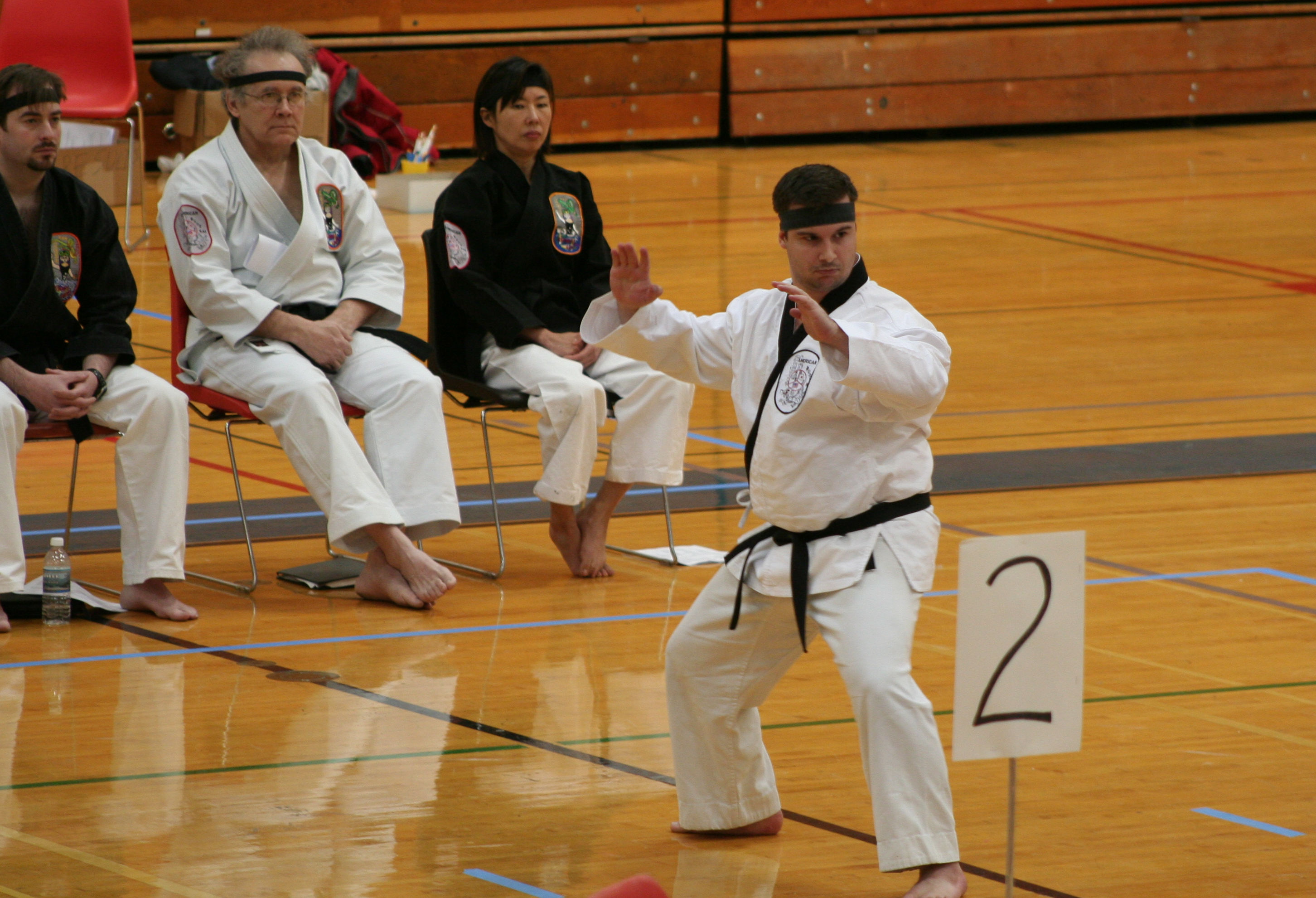
The next step, actually more of an evolution, is forms. Most people, by way of movies and TV, are familiar with seeing them. Kata serve many purposes. They are like a library of the various techniques in a karate style. They're a vehicle for practicing coordination, balance and concentration.
Uses for kata are only limited by your imagination. In fact, doing them can even be a form of relaxation.
This is where you come 'out of the dance' and combat begins to take center stage. Now, training with a partner, you take individual technique from kata and learn distance, timing and the dynamics of working against another person.
However, most importantly, in bunkai the attacks and counters are set so there are no potentially unfortunate surprises.
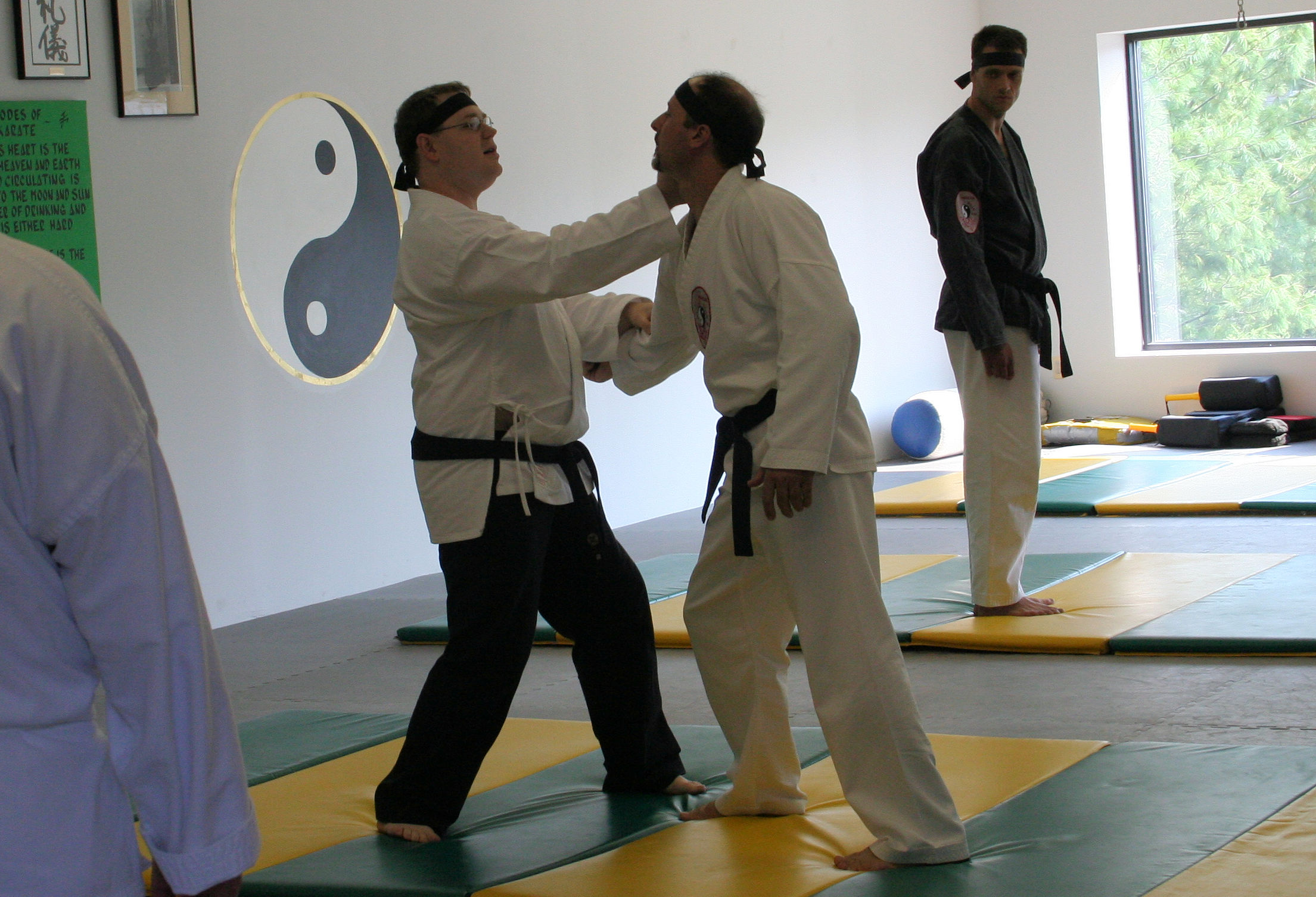
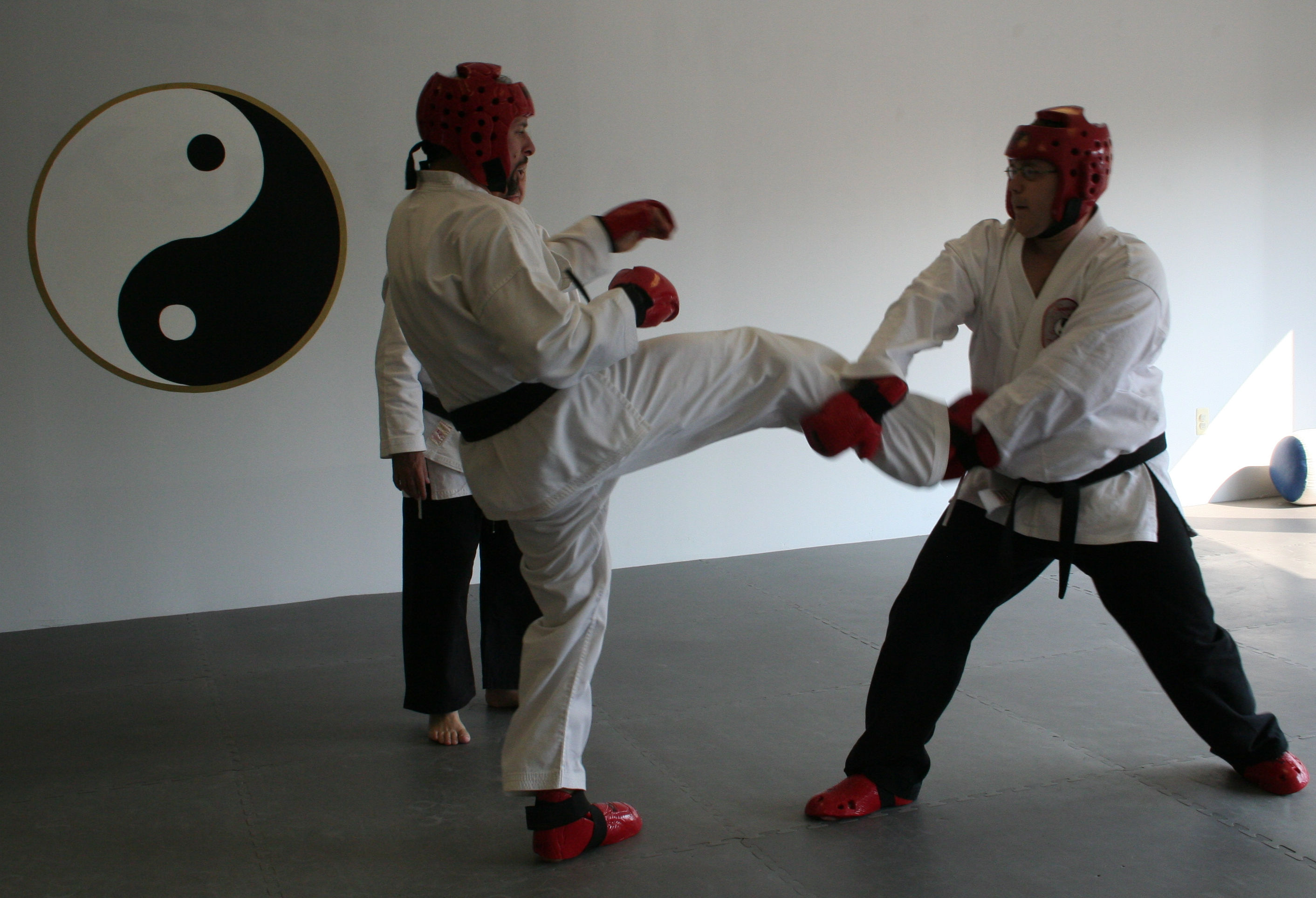
Ultimately, in physical terms at least, kumite is what martial art is all about: Combat self-defense.
The Martial Way, which we equally study, is about living peacefully.
Not everyone sees it like that.
In the dojo, we spar (not fight) with our partner (not opponent or enemy). You hurt enemies, you out-score opponents, but you value partners.
Technique is strictly controlled. No contact is allowed to the head. Only light contact to the body. We wear equipment only in case of accidents.
The characteristics of a weapon determine its use. Ancient weapons training can be effective - and relevant.
A bo and a broom handle work the same way. Know how to use an eku and things like shovels and rakes become dangerous on a whole new level. Yesterday's tuifa are today's police batons.
Weapons training isn't actually karate. On Okinawa, it's common to find empty-hand dojo that teach weapons as a supplemental study - and, in weapons dojo, it's the other way around.
This training rounds out a student. In one case the weapon is an extension of the self, in the other the self is an extension of the weapon. (Think samurai's relationship with his sword.)
In our dojo, weapons training extends beyond kata, following the same track as karate toward kumite.
Weapons are not toys. Children wielding weapons are not cute.
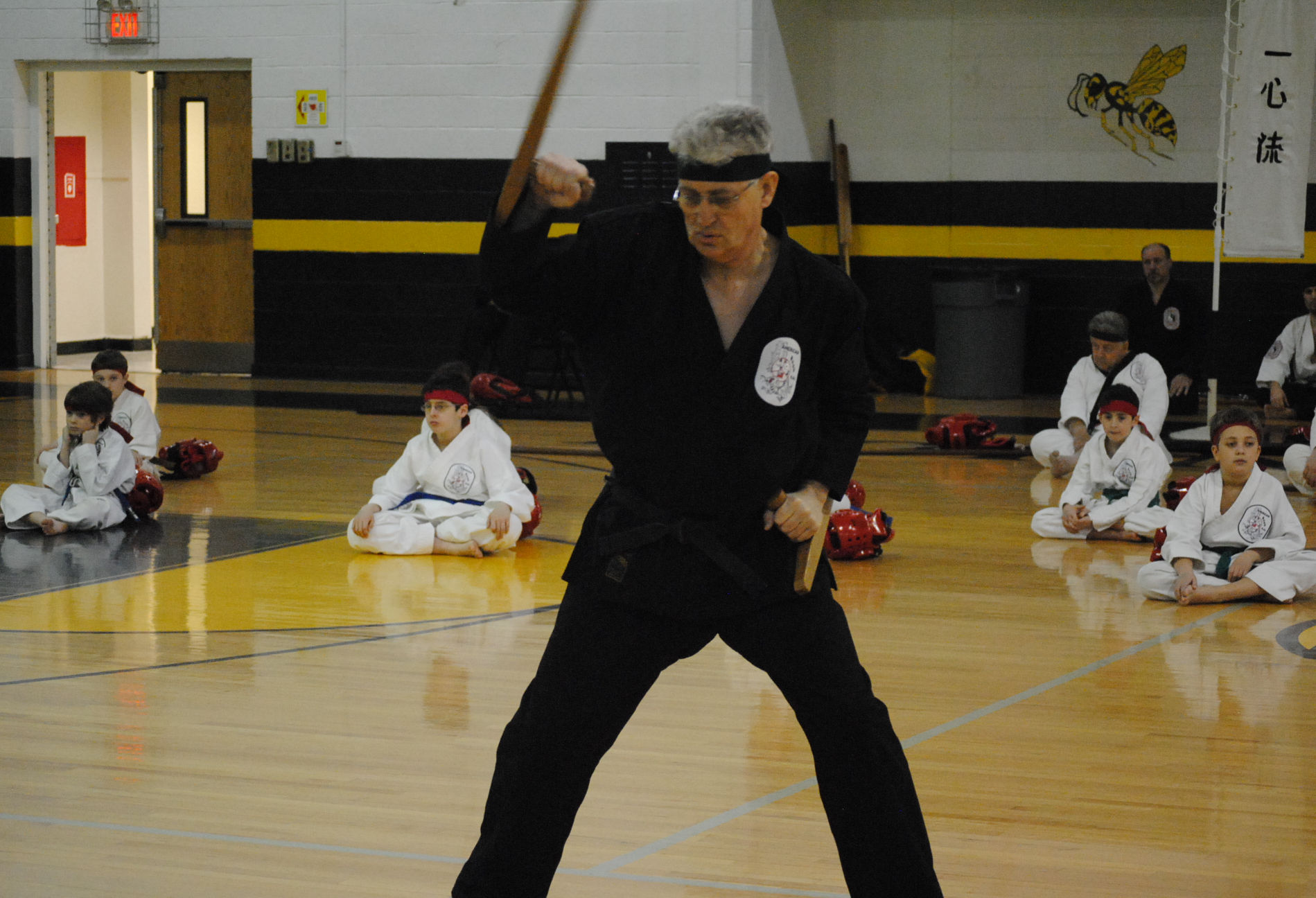
We want to make that clear up front because you might wonder after hearing that we also work them harder than perhaps anywhere else they go.
But as serious as we are about training children properly, we know that what we do is intended to cultivate their amazing spirit, not extinguish it.
Some kids immediately take to the experience while others need to adjust. But, once on board, they blossom in being treated with respect and having the personal sense of accomplishment for even small victories they themselves had to earn. You can actually see it happening.
Kids are quick to pick up that their instructor's stainless-steel insistence comes from honest devotion - to them. That they won't be given up on when they struggle. That they won't be played.
There's nothing here about actual karate lessons because they really are the same as for adults - with modification, of course!
Follow this link below to Karate for Men, Women and Teens for details about our training program.
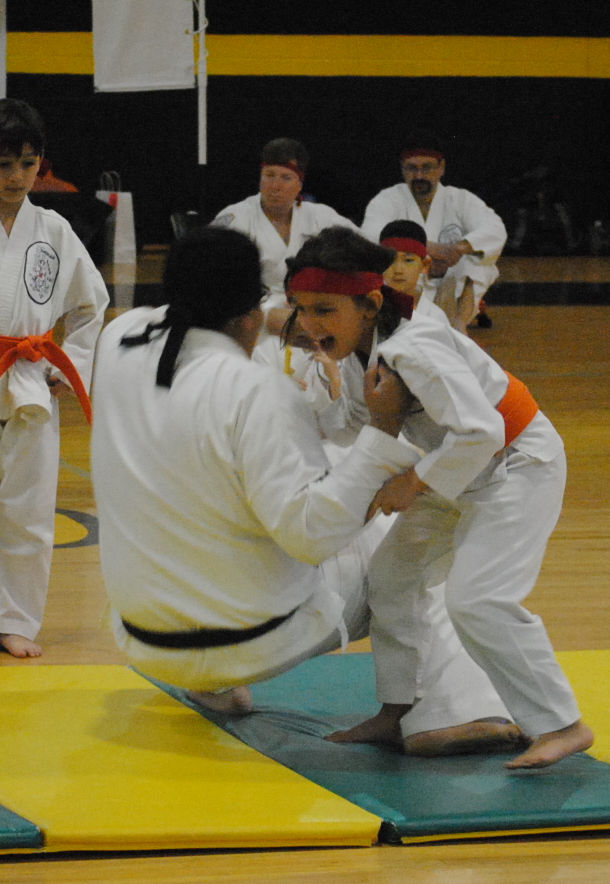
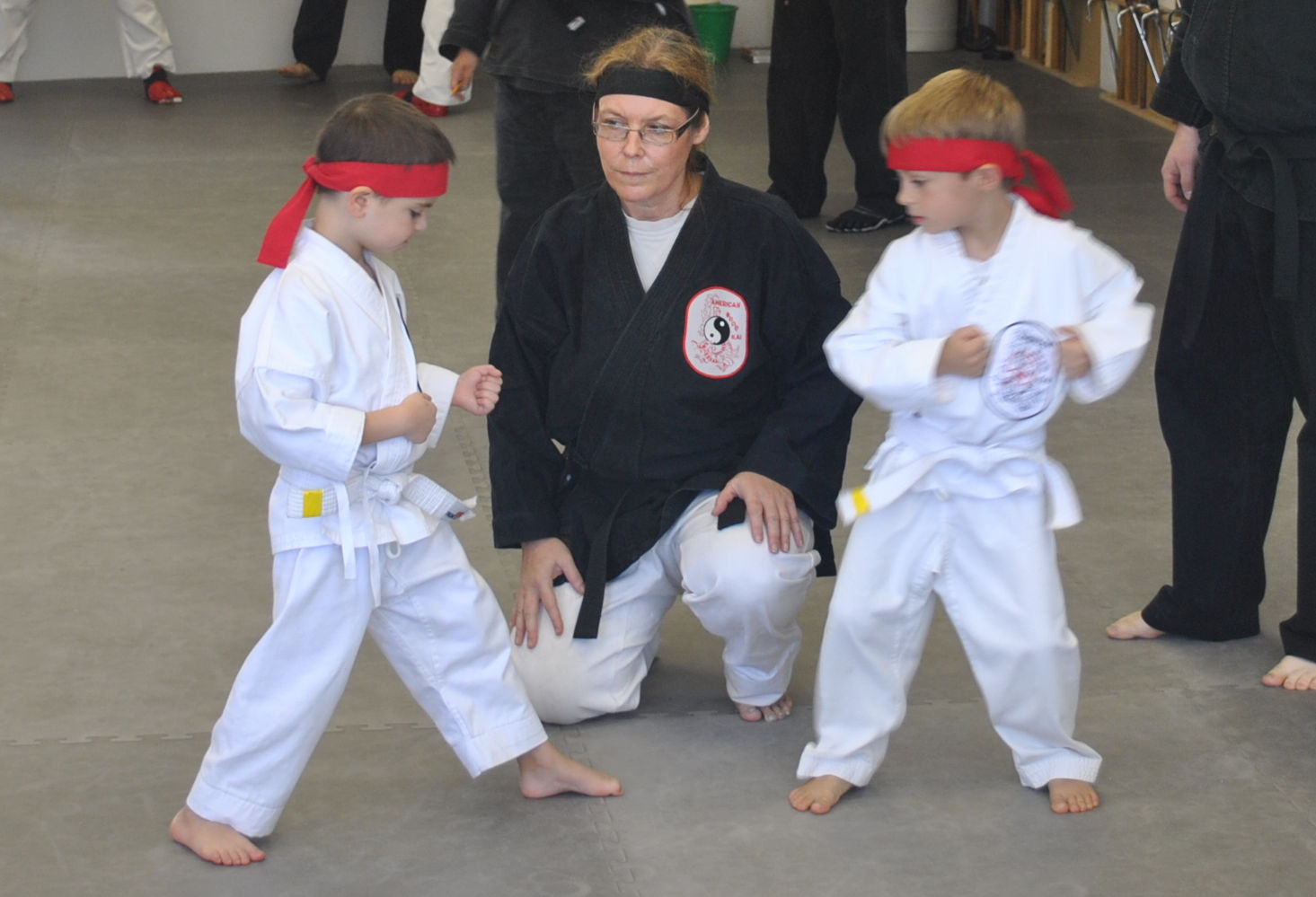
When learning anything, repetition is a fact of life. This is especially true for karate. Unfortunately, in our computer oriented world, it's becoming a lost art.
People, particularily kids, find repetition boring. And that's where Perfection Practice comes in because this method is neither mindless nor without purpose.
Instead, each set is unique and another concrete step toward greater ability. Looking at practice this way isn't boring - until it is. Boring, you see, is the mental signal that you're moving on to the next stage referred to as 'muscle memory'. Something every master craftsman from carpenters, to jet pilots, to surgeons relies upon.
Perfection Practice is an invaluable learning skill. For kids, however, it initially requires a lot of support from both their instructors and those they want even more to please - their parents.
The bottom line is, learn it now or wish you had when you get to law school!
East Morris Karate Academy
14 West Street,East Hanover,
NJ 07936